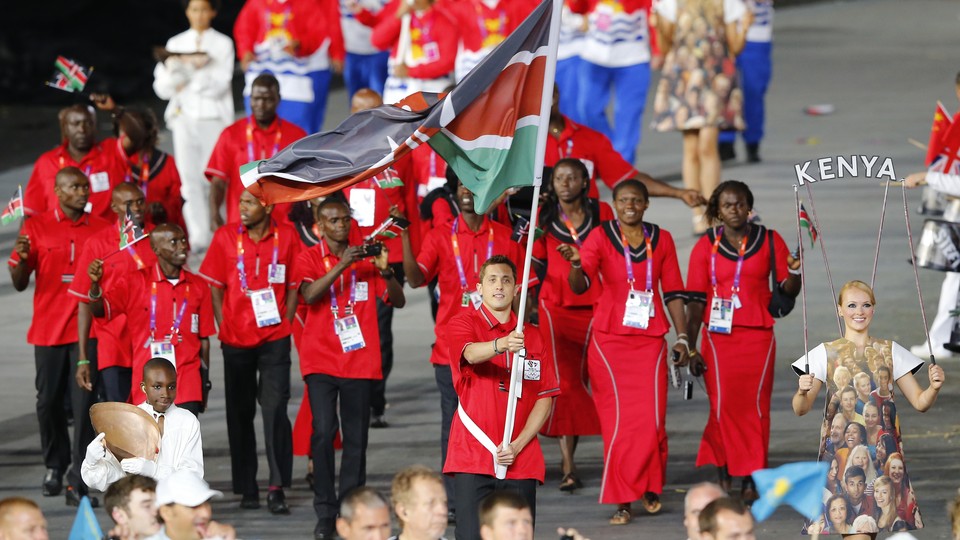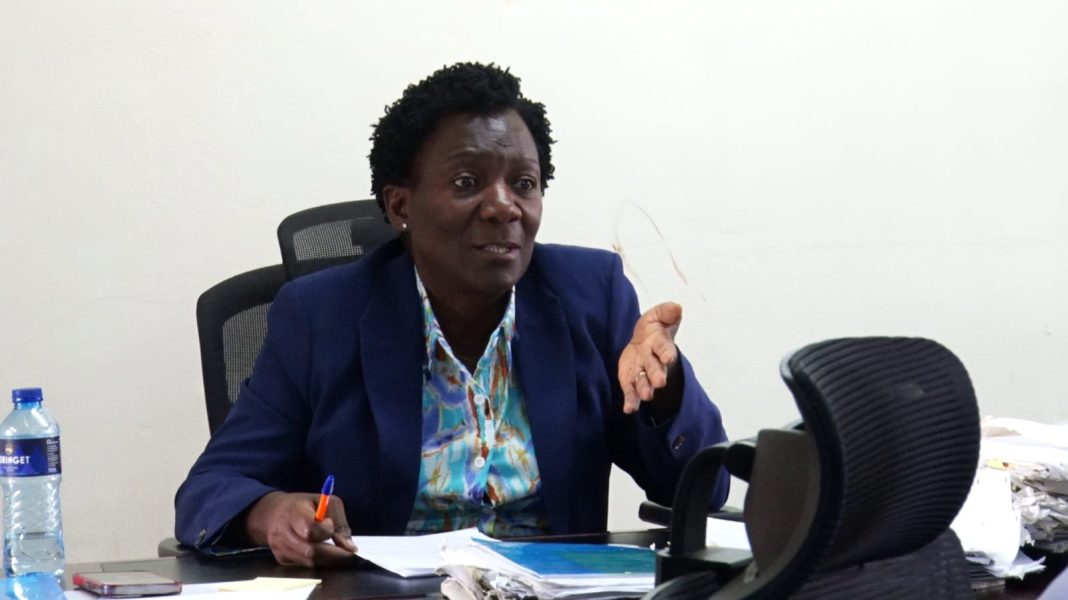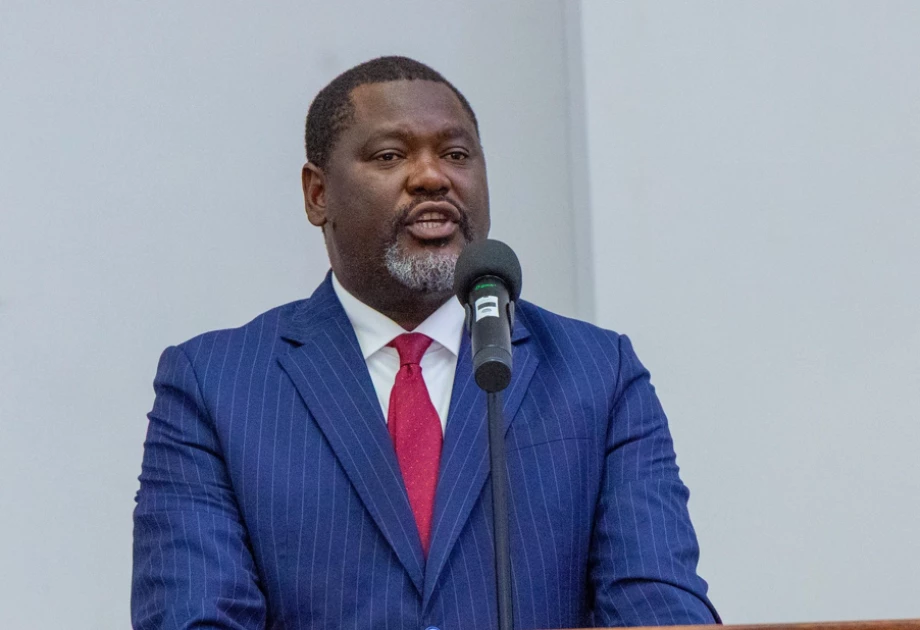The second day of the Athletics Kenya (AK) constitutional review held at the Eldoret Sports Club on Tuesday was dominated by calls to confront the country’s doping menace and reform the federation’s leadership structure.
Athletes, coaches, and officials from Uasin Gishu, Nandi, Baringo, and Elgeyo Marakwet counties turned up in large numbers to give their input on how to strengthen athletics governance in Kenya.
Former world 800m champion Janet Jepkosgei lauded Athletics Kenya for initiating the constitutional review, terming it a timely opportunity to address key challenges facing the sport.
“This is a very important and timely exercise. I thank Athletics Kenya for giving us this platform to shape the future of athletics. I’ve proposed that the vice president’s position be reserved for a woman and that athletes’ representatives be elected, not handpicked,” Jepkosgei said.
She stressed that gender balance and fair representation were crucial for restoring trust and inclusivity within the federation.
Former Boston Marathon winner Moses Tanui echoed the sentiment, calling for elections to be held simultaneously across all levels and for national team coaches to be selected by panels of qualified, reputable trainers.
Team Kenya captain at the 2021 World Athletics Championships, Julius Yego, proposed that athlete representatives be included in AK’s Executive Committee and be allowed to hold decision-making powers.
The doping scourge, however, dominated discussions, with participants warning that the credibility of Kenyan athletics remains under threat. In Kapenguria, where the first forum was held, former world steeplechase champion Christopher Koskei called for tougher penalties proposing an eight-year ban for athletes, coaches, and team managers found guilty of doping.
“The punishment must be extended beyond athletes. Coaches and managers who facilitate doping must also face similar bans,” Koskei insisted.
Meanwhile, in Garissa, where the nationwide public participation forums kicked off, stakeholders from the North Eastern region raised concerns about poor sports infrastructure and lack of inclusivity in athletics development.
Local coach Abdi Rahman cautioned against shifting elections from regional to county levels, warning it could lead to unequal representation. “The regional structure has ensured fairness. Moving to county elections might create discrimination and overrepresentation in some areas,” he noted.
Another participant, Osman, urged Athletics Kenya to ensure full inclusion of Persons with Disabilities (PWDs) in leadership and talent development. “No athlete should be left behind because of physical challenges,” he said.
Sports Registrar Rose Wasike encouraged participants to be vocal in their contributions, noting that public input is vital for building a transparent and accountable federation.
“Public participation is not a formality it’s your right as stakeholders to shape the future of athletics in Kenya,” Wasike emphasized.
Athletics Kenya Vice Treasurer Dilly Kisalu echoed her remarks, saying that public feedback gathered from the forums would guide the final document to ensure it reflects the voices of all stakeholders.
The nationwide consultations, conducted under the Ministry of Youth Affairs, Creative Economy and Sports, are expected to conclude on November 14, 2025. The revised Athletics Kenya constitution will be aligned with the Sports Act, 2013, to promote accountability, fairness, and integrity in Kenya’s most celebrated sport.







[6372]Jollibee777: The Best Philippines Online Casino. Easy Jollibee777 login, quick register, and slot login. Download the official Jollibee777 casino apk and app for big wins today! Experience Jollibee777, the top Philippines online casino. Fast jollibee777 login, easy register, and slot login. Download the jollibee777 casino apk and app today for big wins! visit: jollibee777
online pokies australia paypal
References:
https://careers.simplytech.co.za/employer/2025/
paypal casino usa
References:
https://expertconseilengestiondepatrimoine.fr/employer/20-best-online-casinos-in-australia-for-real-money-in-2025/
online poker real money paypal
References:
https://www.naukriupdate.pk/companies/us-online-casinos-that-accept-paypal-2025/
online casinos paypal
References:
https://sangrok.net/bbs/board.php?bo_table=free&wr_id=1280
australian online casinos that accept paypal
References:
http://www.smilecarexport.com
casino with paypal
References:
zenithgrs.com
If a specific no-deposit offer is not currently active on the main site, don’t be discouraged, as there are alternative ways to find value.
The process is straightforward, but missing the code entry can result in forfeiting the bonus,
so attention to detail is key. For new members, the journey begins with a massive welcome
package that covers the first five deposits, ensuring a sustained boost to your initial
bankroll.
These alternative links, such as skycrown 1, skycrown 2,
or even skycrown 3, guarantee that technical glitches or regional restrictions never stand in the way of your entertainment.
Whether you are a seasoned high roller or a casual beginner, this
review will provide the insights you need to
navigate the platform with confidence. Skycrown Casino is committed to promoting responsible gaming practices.
New players are welcomed with tutorials, demo rounds, and
a lucrative welcome bonus. All offers are designed to
enhance your gaming experience to the fullest. Dive into the exciting bonus opportunities at Skycrown Casino crafted for all players.
References:
https://blackcoin.co/no-verification-casinos-in-australia-the-ultimate-guide/
Ensuring scalability before investing in a
particular platform is the surefire way to make smart decisions and
increase potential returns. An integrated native wallet
lets you complete your purchases faster and helps build
trust in the platform’s future. Each blockchain’s level of security differs from its consensus mechanism, so
it’s wise to ensure that the platform you’re looking into adheres to proven and secure standards.
Look for platforms with easy navigation, transparent information,
and well-designed dashboards. A user-friendly and intuitive interface can greatly enhance your NFT marketplace experience.
Determine the type of digital assets you want to sell or purchase.
References:
https://blackcoin.co/evospin-casino/
Welcome to the most comprehensive, unique list of game hacking resources on the web!
These links lead to reliable sources where you can play
a wide variety of games without encountering network restrictions.
Below is a curated list of backup links to unblocked game websites.
A repository with more than 400 popular Roblox games with their source
code.
A classic arcade game where you control a spaceship and try to
defend against waves of invading enemies. A single-player game where the player controls a snake that grows each time it eats food.
The game provides hints after each guess, indicating if
the target number is “Higher” or “Lower” than the player’s guess.
A number guessing game where the player tries to guess a randomly generated number within a range.
Each game is contained within its own folder, complete with the main game
code, unit tests, and detailed instructions for playing.
There was an error while loading. Flip the
cards, try to remember their positions, and match all
pairs to win the game! A puzzle game where the objective is to
combine tiles with the same value to reach the elusive
2048 tile.
References:
https://blackcoin.co/list-of-casinos-in-brisbane/
Finding a good site for QLD players is also about securing the best welcome bonuses too.
We have some top recommendations for QLD players like you.
And if you’re playing at an overseas gaming site, it’s vital
to check they have the proper licensing in place and security to die for.
The 2001 Interactive Gambling Act prohibits unlicensed gaming sites from operating in Australia.
When updating and creating data from a gallery to a SharePoint list, using Patch(ForAll()) is the better choice
over ForAll(Patch()). This method leads to multiple requests to
SharePoint, which can be inefficient for larger datasets.
Let’s consider a scenario where you have a gallery that displays
various fishing trip data, including the location, date, the number
of fish caught, and a unique identifier for existing trips.
To do so, insert a Button control on the Power Apps screen and set its OnSelect property to the code below.
On 21 October 1992 the Italian Renaissance building was added to the Queensland Heritage
Register. The Treasury Building, previously known as the New Public Offices, is
a heritage-listed former public administration building located at 21 Queen Street in Brisbane,
and is the largest 19th-century government building in Australia by gross
floor area. You can review your choices and withdraw your consent
at any time by clicking the ’Privacy Preferences’ link in the page side
navigation. By clicking ‘Accept’, you consent to your data being processed by 0 vendors on this web site for the purposes described
in this notice. Trust in our curated selections to elevate
your gamingadventure. Its doors are always welcoming to those seeking an escape into the world of gaming.
References:
https://blackcoin.co/the-top-online-casinos-in-the-us-november-2025/
Bei einem seriösen Online Casino Test achten wir auch immer darauf die Datensicherheit.
Die Seriosität hängt dort stark vom jeweiligen Anbieter
ab – sichere Bedingungen bietet jedoch nur eine offiziell in Deutschland lizenzierte Online-Spielothek.
Dank der GGL-Lizenz wird sichergestellt, dass der Anbieter
die Vorgaben des deutschen Glücksspielstaatsvertrags (GlüStV) aus 2021 einhält.
Mit über 5.300 Spielen bietet Lucky Dreams eine herausragende Vielfalt; Klassiker, Neuheiten und
spezialisierte Formate sind gleichermaßen vertreten. Ritzo bekommt acht
Punkte, weil Ritzo ein stimmiges Gesamtpaket bietet. Paysafecard, Skrill
und Neteller sind für DE-Kunden teils nicht verfügbar, und Krypto läuft über Drittanbieter.
Hierfür stellt dir Wildz eine Reihe von sicheren Zahlungsdienstleistern wie VISA, Mastercard und PayPal zur Verfügung.
Über 1000 Spielautomaten stehen dir hier zur Verfügung und du erhältst für
den Einstieg einen attraktiven 400% Bonus bis zu 40€ plus 100 Freispiele.
Mit einer Einzahlung von nur 10€ sicherst du dir zudem einen 100% Bonus bis zu 100€, der für das gesamte Portfolio genutzt werden kann.
Durch die deutsche Spielerlaubnis hast du Zugriff auf über 800 Spielautomaten.
References:
https://online-spielhallen.de/jackpot-de-slots-casino-deutschland-dein-ultimativer-guide-fur-kostenlosen-spielspas/
Casinoonline.de ist Teil der #1 Online Casino Authority®, dem weltweit größten Casino-Affiliate-Netzwerk.
Diese Spielbanken gehören zu WestSpiel und bieten unter anderem das hauseigene, jährlich stattfindende Pokerturnier WSPT,
die WestSpiel Poker Tour. Näher an der Innenstadt sind die Schnicks Casinos empfehlenswerte Anlaufstellen für Spielautomaten-Fans,
besonders die Filiale in der Aachener Straße.
Im klassischen Casino wird Roulette, Blackjack und Poker gespielt.
Neue Kunden versucht das Casino durch sogenannte „Just for Fun“ – Events zu gewinnen, bei denen die Spiele ohne Einsatz
von Geld ausprobiert werden dürfen. Die Buy Ins für Pokerturniere, die
vorwiegend an Wochenenden stattfinden variieren zwischen 100 und 600 Euro.
Im Automatenspiel erwarten den Besucher 350 Spielgeräte mit insgesamt 14 Jackpot-Anlagen, inklusive einer Auto Mystery Jackpot-Anlage.
Das Casino Duisburg findet der Besucher in der Ruhrgebietsgroßstadt im Citypalais auf
dem ehemaligen Gelände der Mercatorhalle. Das Casino Hohensyburg,
auch bekannt als Spielbank Dortmund, liegt einige Kilometer außerhalb der Großstadt.
Das Kleine Spiel bietet hundert Spielplätze, unter ihnen anderthalb Dutzend Multi-Roulette-Stationen. Für die heutige Spielbank
Aachen, verkehrsgünstig im Aachener Tivoli gelegen,
wurde die erste Glücksspielkonzession in den 1760er-Jahren erteilt.
References:
https://online-spielhallen.de/instant-casino-mobile-apps-dein-pocket-casino-immer-dabei/